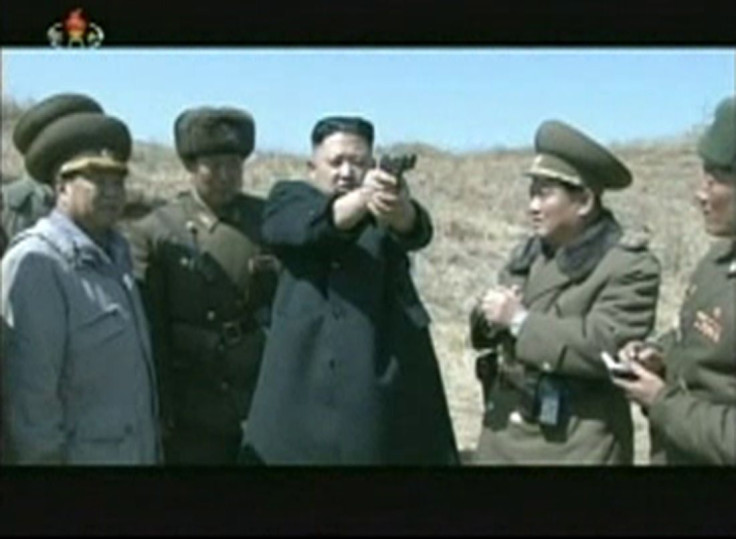North Korea: Foreign Embassies Ignore Evacuation Warning, Diplomats Stay Put In Pyongyang

Foreign diplomats in North Korea remained in place on Saturday despite warnings by authorities in Pyongyang that staff at foreign embassies should consider evacuating their missions amid rising nuclear tensions.
According to media reports on Friday, which have since been confirmed by Seoul and Washington, North Korea's foreign ministry asked embassies based in Pyongyang to leave, saying it could not guarantee their safety after April 10 if a war breaks out.
On Saturday, diplomats from a number of countries with embassies in Pyongyang said they had no immediate plans to evacuate staff.
South Korea's Yonhap News Agency quoted a government official who said that diplomats were disregarding the suggestion to leave the country.
"We don't believe there's any foreign mission about to leave Pyongyang," the unidentified official was said. "Most foreign governments view the North Korean message as a way of ratcheting up tension on the Korean Peninsula."
"The security of the German embassy and its exposure to danger are continually being evaluated," the German foreign ministry said in a statement on Saturday. “For now, the embassy can continue working."
Russia responded by asking if the warning was an order to evacuate the North Korean capital or merely a suggestion. "This proposal has been sent to all the embassies in Pyongyang," Foreign Minister Sergey Lavrov said. "We are now trying to clarify the situation. We asked our North Korean neighbors a few questions that need to be asked in this situation."
A British Foreign Office statement read, "We are consulting international partners about these developments. No decisions have been taken, and we have no immediate plans to withdraw our embassy."
The statement added, “In recent weeks, the North Korean government has raised tensions on the Korean peninsula and the wider region through a series of public statements and other provocations.
“We condemn this behavior and urge the North Korean government to work constructively with the international community, including over the presence of foreign embassies.”
The Foreign Office said its next move included the possibility of amending travel advice. According to Al Jazeera, Western tourists returning from organized tours in Pyongyang said the situation on the ground appeared calm, with life going on as normal.
Apart from Germany and Britain, Sweden, Bulgaria, Poland, the Czech Republic and Romania have embassies in Pyongyang. China's Xinhua news agency on Friday quoted North Korea's Foreign Ministry as saying the issue was no longer whether a war would break out, but when. On Saturday, Chinese Foreign Minister Wang Yi repeated Beijing's calls for dialog to resolve the tensions in a phone call with UN Secretary-General Ban Ki-moon.
"We oppose provocative words and actions from any party in the region and do not allow troublemaking on China's doorstep," a statement on the ministry's website said, citing Wang.
In another development on Saturday, four days after Pyongyang closed its border to people and goods, 21 more South Koreans began leaving the North and the factory where they work, according to Al Jazeera.
The Kaesong industrial park -- a commercial project that both Seoul and Pyongyang have supported for years -- is considered the last remnant of cooperation between the two countries. Up to 500 South Koreans are believed to still be at the Kaesong industrial complex. North Korea, which was angered by the latest round of United Nations sanctions that followed its third nuclear test and by joint U.S.-South Korean military exercises, has issued a series of military threats against Washington and Seoul in recent weeks.
North Korea's government daily newspaper said tension remained high because the U.S. was "waging madcap nuclear war maneuvers." Pyongyang claims it has the capability of launching nuclear weapons.
© Copyright IBTimes 2024. All rights reserved.





















